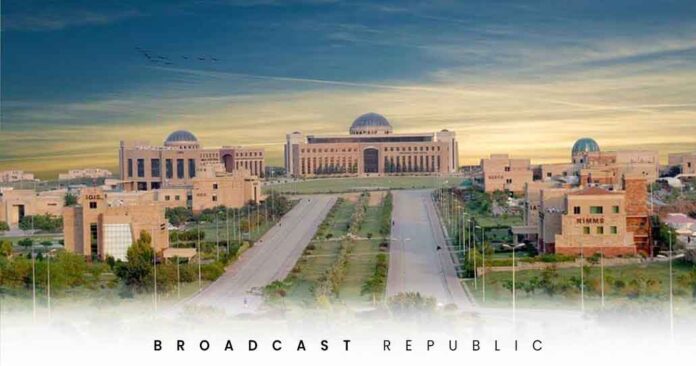NUST approches to fix the environment utilizing a monitoring mass spectrometer, a satellite,used by the local navigators and NASA to look at air quality. Keeping with Nasa’s orbit-ground GEMS satellite, NUST has become the 1st organization in the whole Northen South region.
Dr. Muhammad Fahim Khokhar, the head of the department at the institute of environmental sciences, claimed that NUST became the 1st foundation in the entire area to be part of an orbit-based geostationary satellite after it received tools to calibrate, compile and calibrate live air quality data.
Dr. Khokhar added, “Air quality has become a global issue with its impact on the society, economy, industry, diplomacy, public health and natural resources in addition to environmental science.”
He added “Asia, with its rapid increase in industrialization and population, was regarded as an important source of global-scale emissions. Thus, it is crucial to monitor the concentration of relevant gases and aerosols over Asia in high temporal and spatial resolution from geostationary orbit satellites.
GEMS is the 1st satellite device in a group of three formations of stars that converted the way technologists look at the quality of the air over big parts of the northern division.
GEMS, in the daytime hourly, from a set orbit through the equator, monitor atmospheric gases over Asia. Because of the satellite, researchers can now easily route air pollution from space.
Individually, what (WHO) World Health Organisation advice about air according to public health specialists get to knows that nine out of 10 people breath air people to breathe more polluted air.
Low-income or middle-income countries mostly have the worst air quality, whereas Pakistan is amongst the countries which have a bad air index.
In recent years the global conflict has been merged with air pollution and particularly due to the increasing health and socio-economic issues. In Pakistan, the risk has become more prominent as it is a developing country, so it lacks protection, a management system, and adequate warnings.
Pakistan is facing an alarming situation regarding its poor air quality,as many studies are reporting higher indexes of SO2, NOx, and O3 over the last 20 years. The rise in air pollution is still not declining, somewhat exceeding day by day.

